Author: Daii Source: mirror
The shock that "Stage" brought to me was no less than that of "To Live." You could even say that "Stage" is a condensed version of "To Live"—in this small theater, the concepts of "survival" and "impossible survival" are simultaneously hurled at the audience, knife-points facing each other, without mercy.
In "To Live," Fugui's family struggled under the oppression of the times, their fate like fallen leaves, tossed at will by an invisible hand; in "Stage," that hand is no longer hidden, but grasps a cold golden pistol, dangling "life" and "death," "act" and "not act" on the trigger, forcing an answer. This hand belongs to Marshal Hong, who has just arrived in the city. He demands changes to the classic play "Farewell My Concubine." The troupe is immediately caught in a dilemma: if they don't make the changes, guns are pointed at their heads; if they do, how can they face their ancestors and their consciences? Just as everyone is pushed to the brink of despair, cannon fire blasts erupt, and Marshal Lu enters the city, bringing Marshal Hong down. What a thrilling ending! However, if you watch the entire play to the end, you'll understand: Marshal Lu is no "savior." Although he doesn't change the play, he's even more vicious. He forced the troupe's male dan to succumb to his desires. Ultimately, the male dan drowned himself, his silent death concluding a struggle that could never end. The sound of water, like a cold mirror, reflected the same outcome for both "changing the play" and "not changing it": in the face of absolute violence, artists are mere targets, and even surviving is a luxury. This is the naked law of the jungle: the strong, wielding guns as teeth and cannons as claws, are ready to shatter any fate that displeases them; the weak, on the other hand, can only choose between the gun and their conscience—a fate destined to fail on both counts. When power can be easily replaced yet remains concentrated in one corner, no matter how magnificent the stage or how long the opera, it is merely a backdrop for the wild beasts' frolic. The story of Marshal Hong and Marshal Lu in "The Stage" may seem absurd, but it is a true scenario repeated over and over in human history. I write this article not to recount a play, but to ask a question: Why has the "law of the jungle" remained unresolved to this day? Instead, it repeatedly disguises itself as "realistic" and "rational" in public discourse, even becoming the standard for judging right and wrong for some? You will gain three things from this article: A perspective: See clearly how the gun was grasped and how people were trained to accept it; A historical map: Understand how humans gradually broke the closed loop of the jungle through "power fragmentation," "rule of law," and "technological diffusion"; A realistic path: How ordinary people today can use tools like blockchain to carve out a hidden escape route for themselves and others. Now, let's analyze the law of the jungle, one of the oldest and most stubborn logic in human history. 1. Survival of the fittest: The psychological code behind the law of the jungle. What truly drives the law of the jungle is never the guns themselves, but the fire in people's hearts that yearns for both security and dominance. Without external constraints, this fire will be like weeds in a drought, a single spark can ignite a prairie fire. History and psychology have long since unraveled the underlying principles of this law. 1.1 First, there's the "sweetness of obedience." In 1963, Yale University psychologist Stanley Milgram conducted a famous experiment. He had ordinary people play the role of "teachers" and administer electric shocks to "students" under authority. The results were astonishing: 65% of the participants, even knowing their students screamed in pain, continued to increase the voltage to maximum (Simply Psychology). Milgram concluded that people are not inherently cruel, but rather subconsciously "outsource responsibility" in the face of authority—the phrase "I'm following orders" is enough to silence their conscience. 1.2 Next, there's "positional intoxication." In 1971, Stanford University psychologist Philip Zimbardo constructed a "fake prison" in his basement. He randomly assigned students to be "guards" and "prisoners." Within six days, the previously mild-mannered youths began humiliating and torturing their peers, forcing the experiment to be abandoned. Zimbardo said, "With a new uniform and sunglasses, you and I could become the kind of person we hate." (Wikipedia) Further down the line, there's the "corruption of power without limits." In 1887, British historian Lord Acton wrote to Bishop Creighton, writing the famous line that has been quoted repeatedly by countless political scholars: "Power tends to corrupt and absolute power corrupts absolutely." (oll.libertyfund.org) This line has been passed down for centuries precisely because countless cases have proven its cruelty: From 1937 to 1945, Nazi Germany burned over 16,000 works of modern art, including original works by Picasso, Kandinsky, and others, labelling them “degenerate art.” This act wiped out the work of an entire generation of modern European art. On August 12, 1952, the Soviet regime secretly executed 13 Jewish writers overnight, an event known as the "Night of the Murdered Poets." In the face of totalitarianism, they held no weight even on a piece of paper. The perpetrators are not necessarily evil; rather, they are placed in an environment where "evil is free," gradually sliding into the abyss. Finally, there is the "contagion of fear." During the 1994 Rwandan genocide, RTLM broadcast a barrage of incitement, inciting the nation to violence in just 100 days, resulting in an estimated 800,000 deaths. Research has found that people living within 300 meters of the first killer are significantly more likely to participate in violence. Fear and conformity, like viruses, spread rapidly through social networks along geographical routes (lse.ac.uk).
Putting these experiments together with the jigsaw puzzle of history reveals a profound picture of human nature:
Obedience allows individuals to offload responsibility—"I'm just following orders";
position allows individuals to indulge in power—"I'm the rule enforcer";
unconstrained power ensures the cost is always zero—"I won't be held accountable";
fear and conformity spread evil into collective behavior—"If I don't take action, I might be next."
When these four factors are simultaneously in place, the law of the jungle closes its loop: the cost of violence is zero, and the rewards of evil soar. Marshal Hong and Marshal Lu are but microcosms of the thousands of hands wielding guns throughout history; the figure of the male dan is a victim repeatedly projected by every sweep of power. To crack this equation, we must install a safety valve at any one of the links: obedience—position—consequences—fear: ensure obedience has boundaries, ensure position is subject to oversight, ensure consequences are real, and ensure fear no longer monopolizes information. You may have guessed: the solution lies in those two familiar words: "democracy" and "rule of law." In today's context, we might as well return to the 24 characters long enshrined in the core socialist values: "prosperity, democracy, civility, harmony; freedom, equality, justice, the rule of law; patriotism, dedication, integrity, and friendliness." These words are not rhetoric, but a precise response to history and human nature. But we must understand: democracy and the rule of law are not fruits that grow naturally, nor are they "automatic upgrades" from places of power. Their seeds are born from the realities of repeated power disruptions. 2. Power Fragmentation: The Soil of Opportunities for Democracy and the Rule of Law To break the closed loop of "obedience—position—consequences—fear," the first step is to dismantle the central node that always hangs high. As long as violence and information are monopolized, civilization cannot take root. Throughout history, every sustainable development of democracy and the rule of law has sprouted from the moment power was "forced to disperse"—just as a river's bifurcation reduces the turbulent flow that causes disasters. Ancient Greece: The Granular Revolution from City-State to Citizenship In the 6th century BC, Athens deliberately reduced the size of its city to within walking distance, fragmenting political power into extremely small units: 6,000 jurors were appointed by lot, and 500 citizens took turns deliberating. By the 4th century BC, approximately half of the Greek city-states had implemented some form of democracy (Wikipedia). Within this highly decentralized structure, no individual or family could completely monopolize governance. For the first time, law was brought to the forefront of public debate and became a matter of public concern. In 1215, King John of England imposed heavy taxes and imposed heavy tariffs on landowners, sparking a rebellion by the nobles. Twenty-five rebellious barons, armed with spears, surrounded Runnymede and forced the creation of the Magna Carta (Encyclopedia Britannica), a document that constrained royal power and emphasized "judgment according to law." While not perfect or truly democratic, it established for the first time that even the king must bow to written rules. This historical moment brought law from the throne to the negotiating table. In 1581, the seven provinces of the Netherlands united to break away from Habsburg rule and establish one of the world's earliest republics. Unlike the British monarchy, it delegated foreign affairs and defense to a collegial council, while each province enjoyed a high degree of autonomy over taxation, the church, and personal freedom. Under this system, Amsterdam merchants were free to print newspapers, open trading houses, and raise capital. In the 17th century, Dutch merchant ships accounted for one-third of the world's total, and financial markets and news systems emerged amidst multi-centered competition (gale.com). Britain (Again): Parliament Chains the Crown
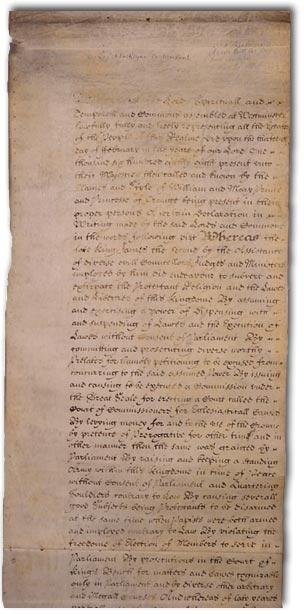
After the Glorious Revolution of 1688, William III ascended the throne. However, to receive military funds, he had to submit annual accounts to Parliament. Consequently, the 1689 Bill of Rights established that "no taxation shall be laid, nor any standing army maintained, without the consent of Parliament" (Wikipedia). From then on, financial sovereignty was returned to the people, with Parliament passing budgets and laws being reviewed. For the first time, royal power was shackled with "budgetary shackles." While these historical fragments may appear independent at first glance, they actually resonate a common melody: Only when power is fragmented can rules prevail; only when the center is weakened can law and reason find room to breathe. Democracy and the rule of law are never gifts from above, but rather byproducts of the repeated constraints and game-playing among countless "power nodes." Just as the balance of a forest depends not on the mercy of wild animals but on the mutual checks and balances between species, so too does the fragmentation of power gradually become a reality. It is precisely for this reason that human society, as power fragmentation gradually becomes a reality, has been able to move from a system where "whoever has the biggest fist has the final say" to a system where "whoever speaks the truth is heard." What followed was an explosion of human creativity: institutions fostered expectations of security, security fostered trust, and trust unleashed imagination—the scientific and technological revolution thus quietly ignited. Democracy, the rule of law, and innovation, together, formed a double-helix upward path for civilization. 3. The "Two-Way Journey" of Science and Technology and Democracy and the Rule of Law When Gutenberg's printing press roared to life in Mainz in 1450, the smell of ink and the clatter of type quietly transformed the distribution of power. For the next six hundred years, technology and institutions have been like a pair of intertwined DNA spirals: whenever one mutates, the other follows suit and evolves co-evolved. Thus, humanity has gradually moved from "rules of the gun" to "written rules."
3.1 Technology Expands Democracy
After humans emerged from primitive tribes, "centralized power" was once seen as synonymous with efficiency. Technology, in turn, was often primarily utilized by those in power. However, as the barriers to information dissemination, communication, and public expression continue to decline, technology is no longer simply a tool for those in power. Instead, it has begun to quietly expand the boundaries of ordinary people's rights. 3.1.1 The Printing Press: Transforming “Literacy” from Rationalized to Affordable
Just twenty years after the publication of the Gutenberg Bible, the price of a Bible in Germany plummeted from 50 gold coins for a handwritten parchment to less than 3 silver coins, a cost reduction of over 90% (Wikipedia). The threshold for literacy subsequently lowered: France’s literacy rate rose from 6% in 1450 to 29% in 1600 (Our World in Data). Only when ordinary craftsmen could translate and write petitions could Luther's Ninety-Five Theses spread across the Rhine within six months, forcing the Imperial Diet to openly discuss "freedom of religion" for the first time. Technology transformed "dictation by priests" into "reading by the public," bringing the authority of the Church into the arena of public debate. 3.1.2 The Telegraph: Compressing "next-day supervision" to "same-day supervision." In 1844, Morse code connected Washington and Baltimore. Within a decade, the United States had laid over 50,000 kilometers of telegraph lines. The New York Herald pioneered the use of telegraph to send drafts of congressional debates, which were then printed and published that same night. Research shows that between 1870 and 1890, for every 10% increase in telegraph coverage, absentee voting by state legislators decreased by an average of 2.3% (NBER). This was the first time technology connected "representatives" with "the eyes of the people" in real time. Voter oversight was no longer delayed by weeks, but instead appeared in newspapers the next day, ensuring immediate accountability. 3.1.3 Internet and Social Platforms: Upgrading from a "Magnifying Glass" to a "Microscope" In 1997, the average global online user spent only 30 minutes per week; by 2024, this figure had climbed to 6 hours and 40 minutes per day, with the total number of internet users exceeding 5.35 billion, accounting for nearly 70% of the world's population (DataReportal). The UK's e-Petition platform, launched just over a decade ago, has already facilitated 62 issues entering mandatory parliamentary debate (publications.parliament.uk). During the 2020 US presidential debate, fact-checking organizations published 187 real-time corrections within 90 minutes, with an average latency of only 42 seconds (Poynter). Technological transparency has leapt from a "newspaper magnifying glass" to a "second-by-second microscope," shortening the half-life of public lies to its shortest level ever. In fact, every technological advancement not only changes how we access information but also our ability to participate in decision-making—from "being able to listen" to "being able to speak," and from "being able to speak" to "being able to change." 3.2 Good Democracy Can Give Birth to Good Rule of Law Technology can amplify voices, but only democracy can channel them into the channels of rule-making. The rule of law is responsible for solidifying these voices into "institutional codes" that are accessible, actionable, and enforceable to everyone. Only when the question of "who can write the rules" and "the rules truly work" are both true can technology avoid becoming a new tool for monopoly. This isn't just abstract reasoning; three historical references suffice to illustrate:
A. The 1689 Bill of Rights: Representation First, Rule of Law Second
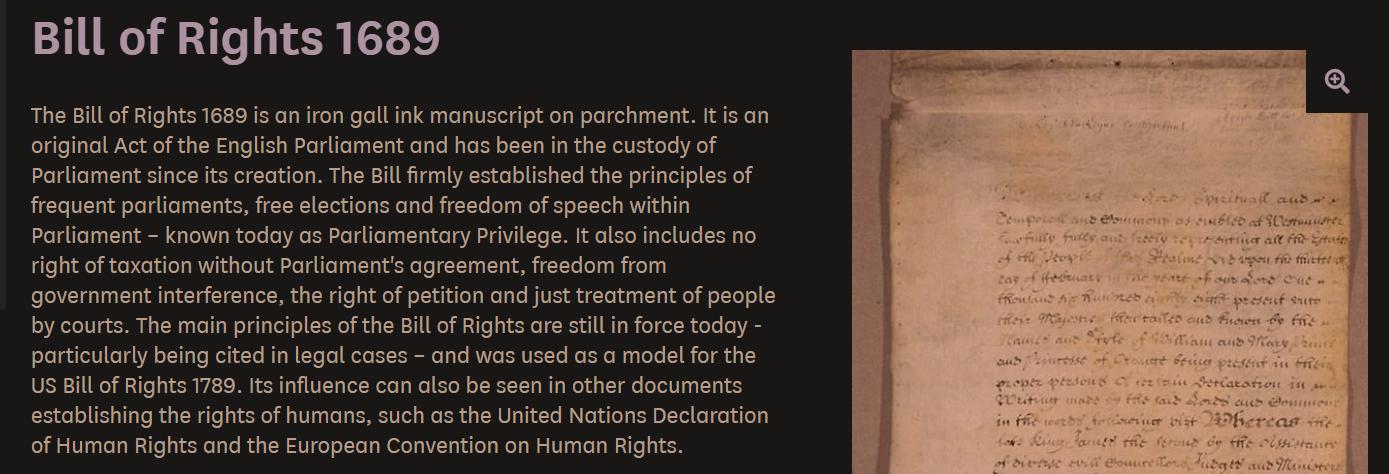
After the Glorious Revolution overthrew James II, William III required Parliament's approval before he could levy taxes or maintain his army. This structure was enshrined in the Bill of Rights, which also articulated core principles such as "freedom of speech" and "a permanent Parliament" (parliament.uk). "Representative mandate" came first, followed by "limitations on royal power." Without the former, the bill would be just paper; without the latter, representation would be mere talk.
B. Data Resonance: Democracy Index ≈ Rule of Law Index
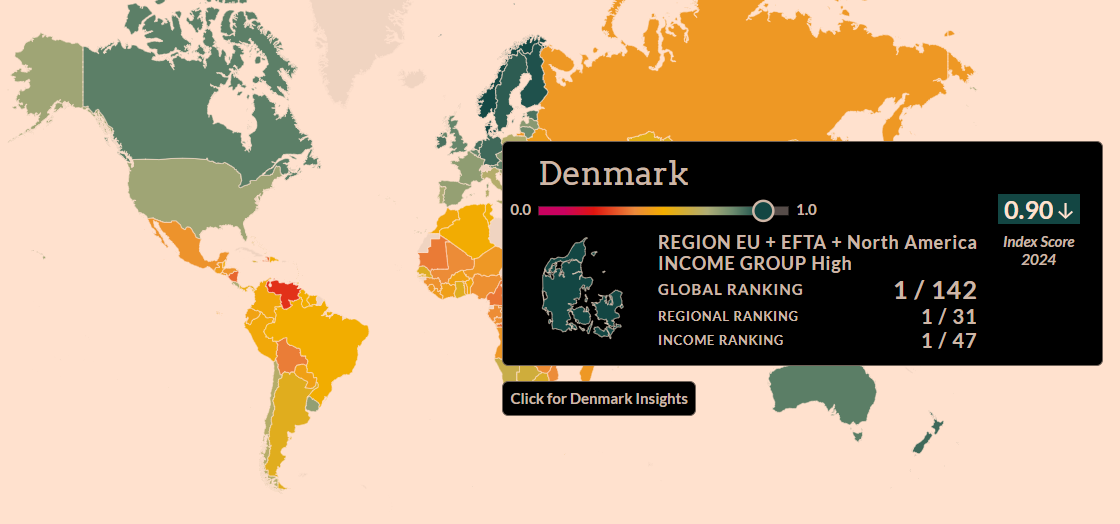
The World Justice Project (WJP) 2024 Rule of Law Index ranked Denmark, Norway and Finland in the top three (World Justice Project). The Economist Democracy Index also ranked these three countries among the top five in the world (Denmark 9.80, Norway 9.81, Finland 9.58) (d1qqtien6gys07.cloudfront.net). Conversely, Venezuela, Cambodia, and Afghanistan, which ranked last, all had democracy scores below 3. The correlation coefficient between the two indices across 142 countries reached a high of 0.86, indicating near-synchronous fluctuations. This demonstrates that democracy is the source of institutions, while the rule of law is their form. C. "Turning the Boss": The Rule of Law Must Be Sheathed in Democracy Following his defeat in the 2022 election, Jair Bolsonaro was investigated by the Supreme Electoral Court and the Federal Police on multiple fronts, including suspicions of plotting a coup, falsifying vaccination records, and inciting violent protests. He testified several times in court between 2023 and 2024, and his loss of political power allowed the judicial process to proceed fully. Benjamin Netanyahu was tried in an Israeli district court in 2022 on three corruption charges (bribery, fraud, and breach of trust). The case remains ongoing, and Netanyahu first appeared in court for cross-examination in December 2024. The election proceeded as planned, with opposition parties holding seats, ensuring the independence of the trial. Time magazine reviewed 15 similar cases around the world and found a common pattern: Only in regimes where votes flow genuinely and the opposition is active does the judiciary dare to "touch the boss." Conversely, in systems of "strongmen and rubber-stamp parliaments"—such as Venezuela and Myanmar—so-called "judicial accountability" is often a mere illusion on paper. The essence of the printing press, the telegraph, and the internet is to give the microphone to more people. But that's not enough—only when these voices can enter legislative channels and be heard in the courts can technology be protected from the abuse of power. Whether the benefits of technology will be swallowed up by the surveillance machine ultimately depends on whether democratic authorization is genuine and whether the rule of law is strong enough. 3.3 The Rule of Law Feeds Back Technological Innovation We shouldn't overlook the reflux effect of this chain either: the rule of law isn't just a cage that constrains technology; it's also an accelerator that drives innovation.
In 1889, the U.S. Supreme Court first established the principle of "obviousness" in the Edison Lightbulb case, opening the patent floodgates for subsequent cross-licensing and directly accelerating the wave of electrification;
In 1958, the National Defense Education Act allocated funds to train 650,000 engineers, including a $10 million grant that gave birth to ARPANET, the predecessor of the Internet;
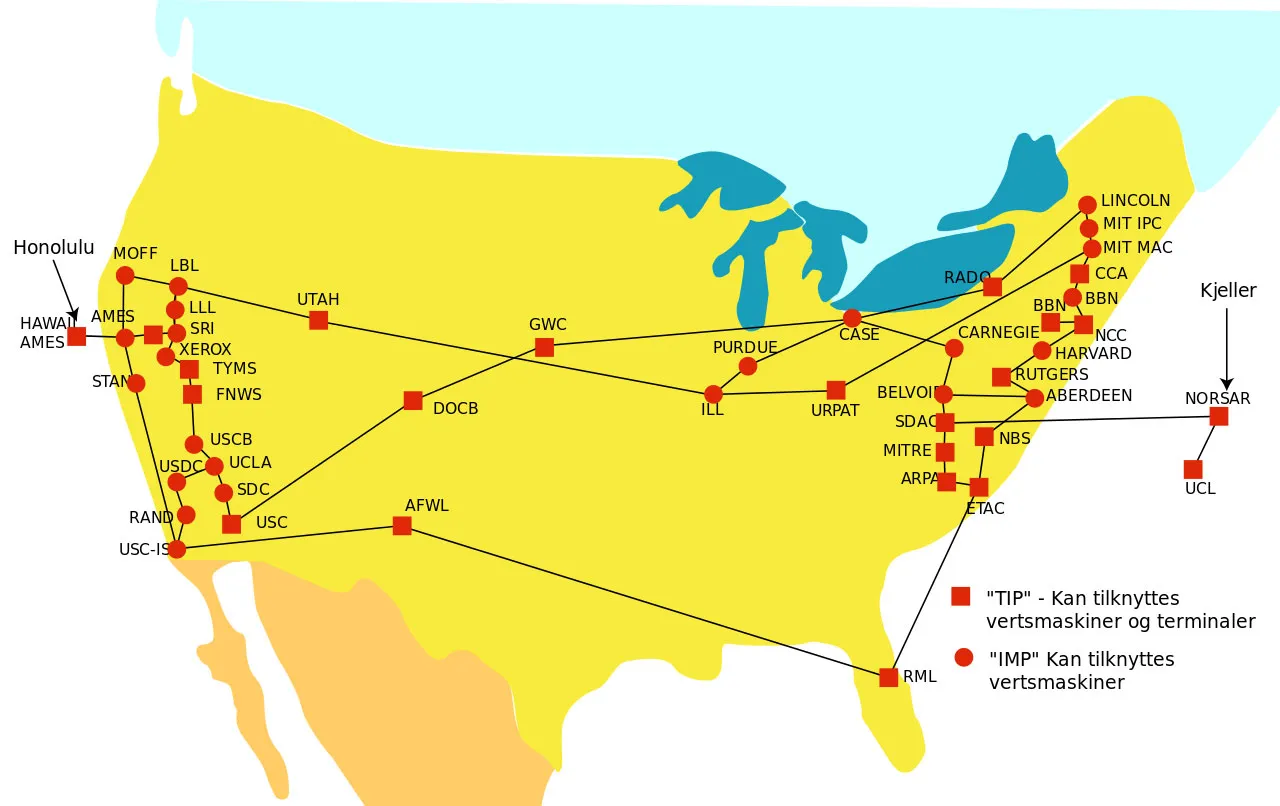
In 2016, the EU General Data Protection Regulation (GDPR) The inclusion of the "right to data portability" in Article 20 has spurred a wave of innovation and entrepreneurship, including cryptographic protocols and zero-knowledge proofs. As long as the rule of law provides clear property rights, transparent budgets, and reliable litigation mechanisms, innovators will be bold enough to venture into the open. Conversely, ambiguity and disorder will only transform technology into a breeding ground for monopoly and crime. 3.4 Summary From the printing press to the blockchain, each technological leap has reduced the "walled costs" of information and capital, forcing power to decentralize and make concessions. And each institutional innovation—from paper petitions to on-chain voting—has in turn paved the way for the spread of technology. Science and technology, along with democracy and the rule of law, have been intertwined and co-evolved over centuries. As long as this double helix continues to spin, Marshal Hong's golden pistol will find it difficult to easily pull the trigger.
However, as we have seen, the world never develops evenly. In some countries, votes and the rule of law are as numerous as stars; in other places, the law of the jungle has never truly left the scene, waiting only for a change in the wind to return.
When the state itself becomes an obstacle to the progress of civilization, traditional governance tools have long been stretched to their limits. Economic sanctions and diplomatic isolation, while powerful, are unlikely to reach the microscopic level of individual destinies.
But in this evolutionary relay, a new variable has quietly emerged:
Blockchain—a virtual replica of the real-world "fragmentation of power"—may be providing a subtle but resolute escape route for those trapped under the power of the powerful. 4. Decentralization: A ray of hope amidst the shadow of power When traditional finance, media, and the judiciary are all firmly gripped by the same iron fist, blockchain is like a silent undercurrent—though its surface is narrow, it carves a hidden river for the circulation of value within the impenetrable walls of power. However, we must understand that the source of the power of blockchain's decentralization is the fragmentation of power. 4.1 From "Fragmentation of Power" to "Decentralization" When medieval Europe was divided into hundreds of principalities, no single center of power could maintain a monopoly on violence and knowledge for long. It was within the cracks of this fragmentation that the movable type printing press emerged, transforming the Latin scriptures of the clergy into affordable paper and transforming the "moat of knowledge" into a public river. Over the next four hundred years, history embarked on a trajectory verifiable by data: By 1600, France's literacy rate had risen to 29%, a full threefold increase from 1470; two generations later, the Bill of Rights enshrined "no taxation without Parliament" in the English monarch's scepter; and a century later, Britain's industrial patent system and steam engine boomed simultaneously, boosting its per capita GDP to 2.4 times the continental European average (IMF long-term series). Every time a "single point of power" is dismantled, humanity gains another technological bonus. Blockchain is attempting to replicate this physical ladder in the virtual world:
No central ledger: The Bitcoin network has over 23,000 full nodes distributed across 140 countries. Want to "close the chain with one click"? You'd need to simultaneously unplug tens of thousands of data cables around the world.
Permissionless access: Users can bypass foreign exchange controls within their mobile wallets and transfer all their assets across borders with just 24 mnemonics.
Verifiable consensus: Every transfer is recorded on-chain, preventing corruption and embezzlement while allowing global observers to monitor the chain in real time.
Just as the fragmentation of power in the real world paved the way for the Industrial Revolution, decentralization in the virtual world may be opening the door to future "public chain governance" and "code constitutions." 4.2 Three Real Escape Routes The following three real-life stories perfectly illustrate how decentralized technology offers people a glimmer of hope amidst the realities of oppression. ● Venezuela: Using Private Keys to Combat Million-Fold Inflation Between 2015 and 2020, the purchasing power of the bolivar evaporated by over 99.9999%. During the worst week, buying a pound of bread required three large bundles of banknotes. Amid this "cash cave," workers in Caracas have learned a new habit: upon receiving their wages, they immediately open their phones and exchange the money for BTC or USDT. In 2024, NGO statistics showed that local P2P Bitcoin trading volume continued to climb, with weekly peaks ranking among the top three globally. In a country where no one trusts even the official exchange rate, a string of 24 mnemonics is like a "portable bank." After the 2020 #EndSARS protests against police brutality erupted, the government froze the bank accounts of core organizers. Within hours, the Feminist Coalition replaced its fundraising QR code with a Bitcoin address. Within five days, they received approximately $51,000 in BTC, which they exchanged for local currency through peer-to-peer (P2P) over-the-counter transactions to purchase medical supplies (The Columnist). While traditional finance was forced to shut down, the on-chain pipeline remained untouched.
● Belarus: Cryptocurrency Provides Lifeline Funds for Exiles
The Lukashenko regime's control of banks and severance of charitable accounts has left many families of political prisoners without a livelihood. The exile organization BYSOL opened BTC and USDT wallets in Lithuania and distributed over €600,000 in crypto aid in 2022.
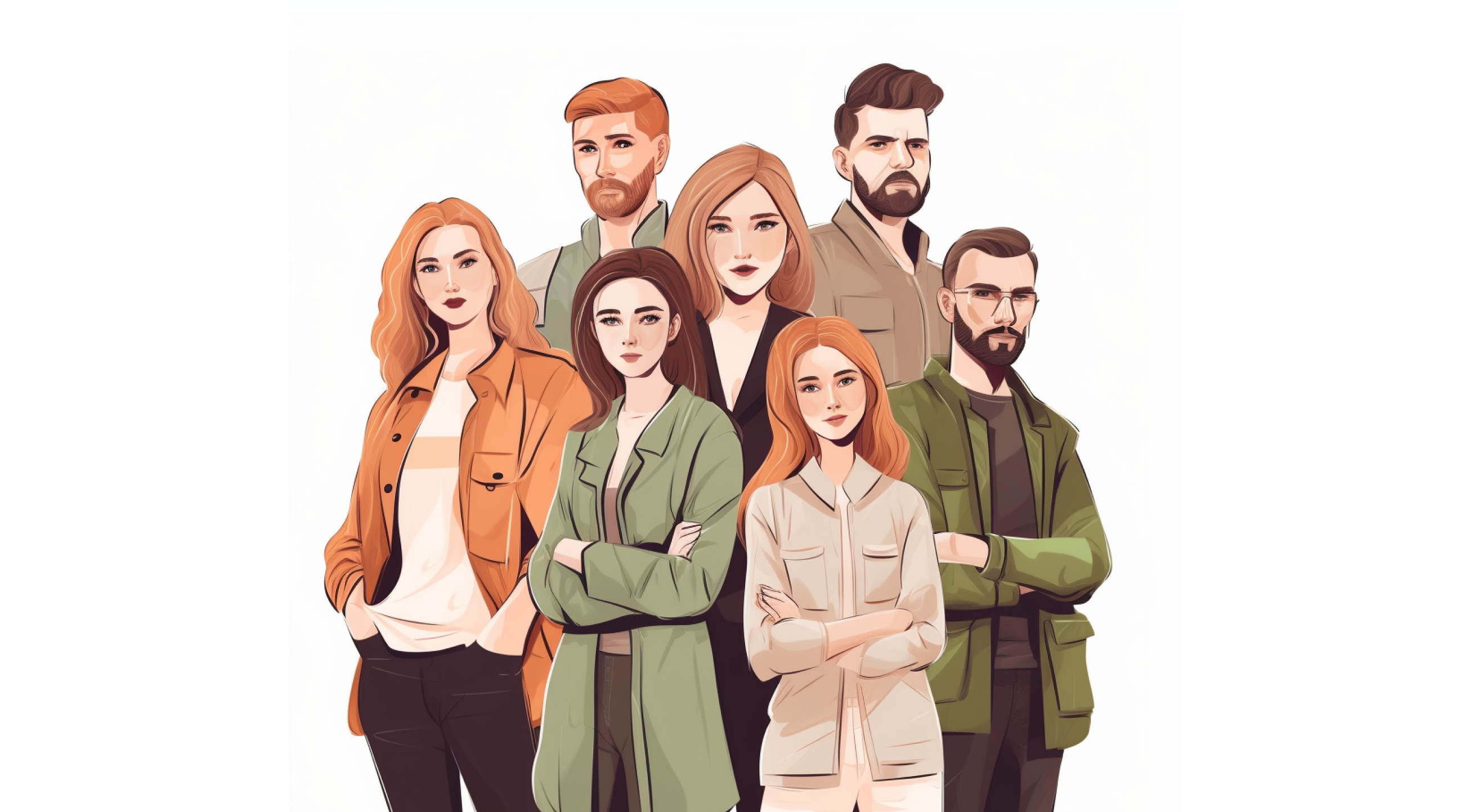
Each payment arrives within an average of 48 hours, and recipients exchange it for rubles via flash exchange counters (Source: bysol.org). Decentralized ledgers ensure transparent and open donation flows, yet they are virtually impossible to freeze all at once. These stories are not distant, nor are they isolated. They represent just the tip of the iceberg—in the shadows of countless powerful nations around the world, countless more people, armed with an old phone and a mnemonic phrase, are wrestling with untouchable power. As on-chain value transfer becomes increasingly accessible, ordinary users can leverage similar low-cost strategies to improve both their knowledge and their bottom line in everyday practice. 4.3 Summary: The Hidden River May Not Be a Panacea, But It's Widening. Blockchain is not a panacea. It's vulnerable to internet and power outages, and it can be used as a tool for scams or speculation. Without legal safeguards, the blockchain could become a Ponzi scheme. But this planet already has more than just ground base stations—
As of August 2025, SpaceX's Starlink constellation has deployed 8,075 satellites, accounting for 65% of the world's total satellites in orbit (Space.com).

Even if there's an Iron Curtain on the ground, there's still the Star Curtain above us.
Just as movable type stuffed truth into a backpack and the telegraph put parliament into the morning newspaper, blockchain is attempting to package finance, contracts, and governance into a single hash. It may not bring about utopia, but it is driving the success rate of "golden gun dictatorship" to a historic low—this is the most covert and resolute counterattack against the law of the jungle. Conclusion: "Stage" presents us with a blood-stained stage—the script is turned by gunpoint, and the actors take their final breaths. It tells us: As long as power can sing alone, the voices of the masses are silenced. The long lens of history tells us: The "multi-voice" of reality is possible because power is constantly fragmented, encircled by the rule of law, and driven by technology. Today, blockchain is replicating this fragmentation into virtual space, like a silent, underground river, weaving between the Iron Curtain and the disconnected internet, carving out a culvert of escape for those under oppression. It's far from perfect, but it's enough to make the Golden Pistol hesitate for the first time before pulling the trigger—costs and consequences begin to emerge as part of the calculation of power. True civilization is never measured by the splendor of the stage setting, but by whether there's still a "Green Marshal" who can, with a single command, decide life and death.
 Joy
Joy










